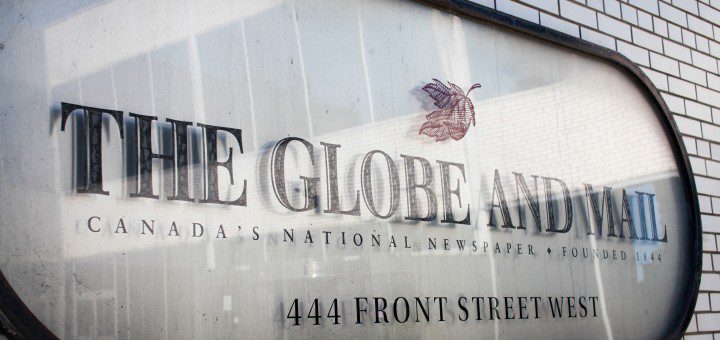[[{“fid”:”3129″,”view_mode”:”media_original”,”fields”:{“format”:”media_original”,”field_file_image_alt_text[und][0][value]”:””,”field_file_image_title_text[und][0][value]”:””},”type”:”media”,”attributes”:{“style”:”height: 258px; width: 180px; margin-left: 10px; margin-right: 10px; float: left;”,”class”:”media-element file-media-original”},”link_text”:null}]]By Sylvia Stead, public editor for the Globe and Mail
Some journalists are expected to have a point of view. Political columnists comment on public policies, and critics are, well, critical when evaluating a performance. In both cases, the writers have opinions and should feel free to express them.
There is also a tradition of provocative thinking in columns and critical writing that is important to free speech. The views expressed often spark a wider debate on the letters page and social media as well as around the dinner table.
As part of that debate, I sometimes hear from readers who believe that, as well as opinion, they have detected bias.
The issue is straightforward for news reporters, who may have personal views, but should do all they can to keep them out of their coverage.
But it can be more murky for columnists and critics, and raises such questions as: What is bias and how much of its perception is in the eye of the beholder?
I had a complaint this week from a reader involved in the Toronto theatre scene who was unhappy with The Globe and Mail’s review of a recent performance by a touring Israeli dance troupe. He considers the review politically biased, complained that the reviewer, a freelance writer, had made anti-Israeli comments on Twitter and asked if someone so disposed should have been given the assignment in the first place.
I looked at the critic’s Twitter feed and saw that there have been a few comments: She links to an opinion piece in an Israeli newspaper about a debate on “Israeli war crimes.”
She also offers a list “of protests for Palestine happening in the world,” and takes issue with the Israel-based SodaStream company, “whose factories are built on illegal West Bank settlements.”
The last two tweets were made before the writer, a noted author, became a Globe and Mail critic, while the first one was earlier this month.
In her review, she describes the dance production as a “political play” that features “Jewish performers running around in a circle and calling out platitudes about their respective struggles. I might be tempted to complain [that the play] offers an egregiously one-sided view of Israel’s wounds.”
Arts editor Jared Bland says the writer “was clear with me in discussing her political beliefs before reviewing this production,” adding that he “shared her piece with another editor here at The Globe who is especially knowledgeable about Middle East politics.
“He had several good queries on her review, and I put them to her. Through the editorial process, we refined her points and she provided excellent documentation on a few aspects of her argument that we had factual questions about.”
To continue reading this column, please go to theglobeandmail.com where it was originally published.

